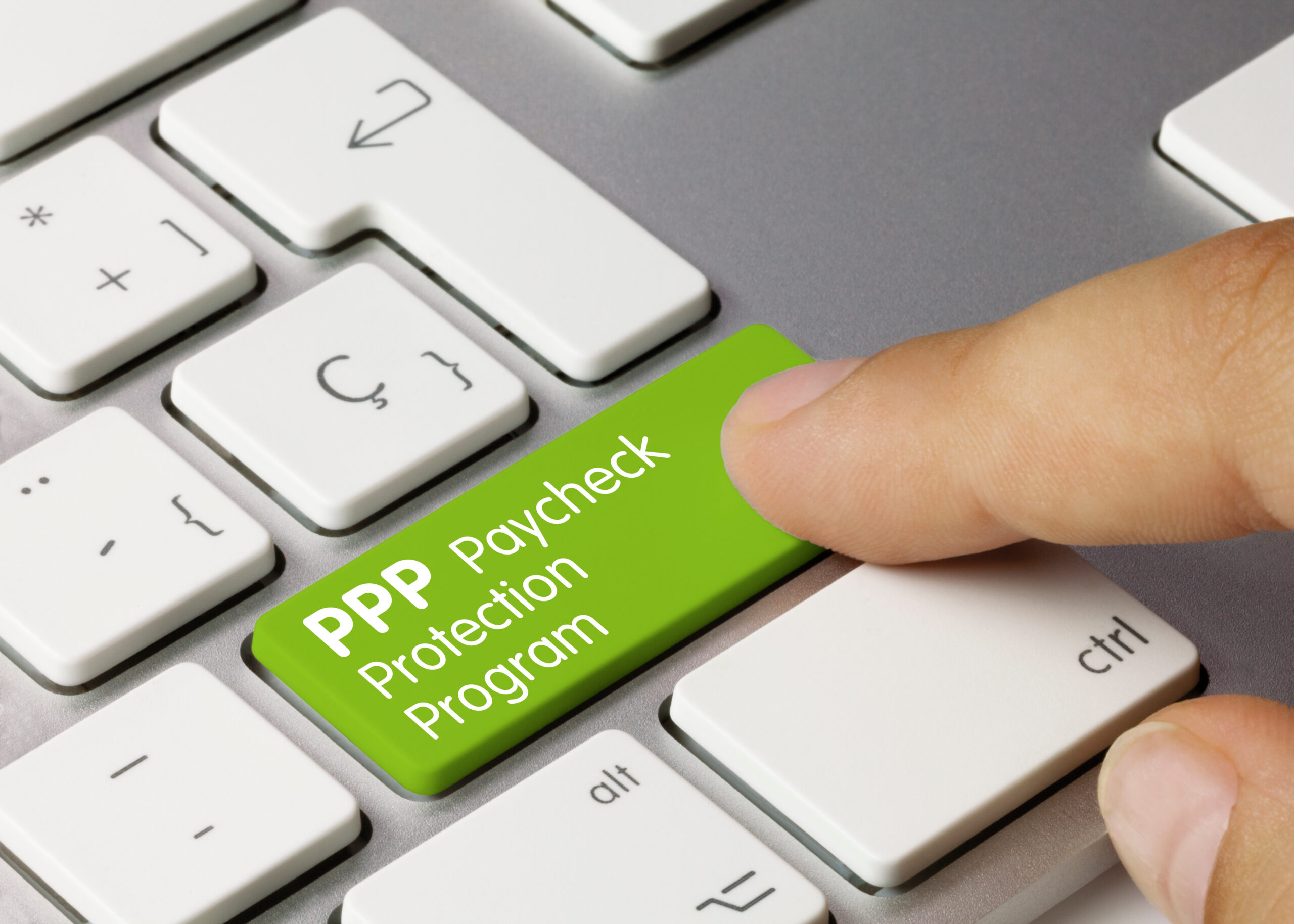
PPP Loan Certification Safe Harbor and Repayment Extension
May 14, 2020
Many Paycheck Protection Program borrowers have been struggling with the new SBA mandate that borrowers revisit their loan application certification that “[c]urrent economic uncertainty makes this loan request necessary to support the ongoing operations of the Applicant.” Borrowers are to revisit this certification and overall eligibility with an eye toward existing adequate liquidity or other available credit through related entities or otherwise, a requirement not a part of the actual CARES Act, but in response to much negative publicity surrounding high profile borrowers. The initial deadline for such reconsideration and repayment on a “no harm, no foul” basis was May 7, extended to today, May 14, and the SBA promised “additional guidance on how it will review the certification prior to May 14, 2020.” Just yesterday, that guidance was issued through PPP Loan FAQ 46. While the FAQ was low on what criteria the SBA will rely upon in such a “review” with respect to borrowers of larger amounts, it did provide a safe harbor with respect to borrowers of smaller amounts, broadly providing that, “Any borrower that, together with its affiliates, received PPP loans with an original principal amount of less than $2 million will be deemed to have made the required certification concerning the necessity of the loan request in good faith.” Additionally, the FAQ indicates that borrowers of amounts greater than $2 million that do not return the loans and after review are unable to support the good faith certification can yet avoid SBA administrative enforcement referral if they then repay the loan (and the SBA will direct the lender that the borrower is not eligible for loan forgiveness). A second FAQ, Number 47, was added later in the day further extending the repayment deadline to May 18, giving borrowers of amounts in excess of $2 million additional time for consideration.
The two added FAQs are as follows:
- Question: How will SBA review borrowers’ required good-faith certification concerning the necessity of their loan request?
Answer: When submitting a PPP application, all borrowers must certify in good faith that “[c]urrent economic uncertainty makes this loan request necessary to support the ongoing operations of the Applicant.” SBA, in consultation with the Department of the Treasury, has determined that the following safe harbor will apply to SBA’s review of PPP loans with respect to this issue: Any borrower that, together with its affiliates, received PPP loans with an original principal amount of less than $2 million will be deemed to have made the required certification concerning the necessity of the loan request in good faith.
SBA has determined that this safe harbor is appropriate because borrowers with loans below this threshold are generally less likely to have had access to adequate sources of liquidity in the current economic environment than borrowers that obtained larger loans. This safe harbor will also promote economic certainty as PPP borrowers with more limited resources endeavor to retain and rehire employees. In addition, given the large volume of PPP loans, this approach will enable SBA to conserve its finite audit resources and focus its reviews on larger loans, where the compliance effort may yield higher returns.
Importantly, borrowers with loans greater than $2 million that do not satisfy this safe harbor may still have an adequate basis for making the required good-faith certification, based on their individual circumstances in light of the language of the certification and SBA guidance. SBA has previously stated that all PPP loans in excess of $2 million, and other PPP loans as appropriate, will be subject to review by SBA for compliance with program requirements set forth in the PPP Interim Final Rules and in the Borrower Application Form. If SBA determines in the course of its review that a borrower lacked an adequate basis for the required certification concerning the necessity of the loan request, SBA will seek repayment of the outstanding PPP loan balance and will inform the lender that the borrower is not eligible for loan forgiveness. If the borrower repays the loan after receiving notification from SBA, SBA will not pursue administrative enforcement or referrals to other agencies based on its determination with respect to the certification concerning necessity of the loan request. SBA’s determination concerning the certification regarding the necessity of the loan request will not affect SBA’s loan guarantee.
- Question: An SBA interim final rule posted on May 8, 2020 provided that any borrower who applied for a PPP loan and repays the loan in full by May 14, 2020 will be deemed by SBA to have made the required certification concerning the necessity of the loan request in good faith. Is it possible for a borrower to obtain an extension of the May 14, 2020 repayment date?
Answer: Yes, SBA is extending the repayment date for this safe harbor to May 18, 2020, to give borrowers an opportunity to review and consider FAQ #46. Borrowers do not need to apply for this extension. This extension will be promptly implemented through a revision to the SBA’s interim final rule providing the safe harbor.
If you have questions about the scope of the Safe Harbor or any aspect of the PPP loan program, contact Scopelitis Attorneys Greg Feary, Steve Pletcher, Prasad Sharma or the Scopelitis COVID-19 Task Force.
News from Scopelitis is intended as a report to our clients and friends on developments affecting the transportation industry. The published material does not constitute an exhaustive legal study and should not be regarded or relied upon as individual legal advice or opinion.

PPP Loan Certification Safe Harbor and Repayment Extension
May 14, 2020
Many Paycheck Protection Program borrowers have been struggling with the new SBA mandate that borrowers revisit their loan application certification that “[c]urrent economic uncertainty makes this loan request necessary to support the ongoing operations of the Applicant.” Borrowers are to revisit this certification and overall eligibility with an eye toward existing adequate liquidity or other available credit through related entities or otherwise, a requirement not a part of the actual CARES Act, but in response to much negative publicity surrounding high profile borrowers. The initial deadline for such reconsideration and repayment on a “no harm, no foul” basis was May 7, extended to today, May 14, and the SBA promised “additional guidance on how it will review the certification prior to May 14, 2020.” Just yesterday, that guidance was issued through PPP Loan FAQ 46. While the FAQ was low on what criteria the SBA will rely upon in such a “review” with respect to borrowers of larger amounts, it did provide a safe harbor with respect to borrowers of smaller amounts, broadly providing that, “Any borrower that, together with its affiliates, received PPP loans with an original principal amount of less than $2 million will be deemed to have made the required certification concerning the necessity of the loan request in good faith.” Additionally, the FAQ indicates that borrowers of amounts greater than $2 million that do not return the loans and after review are unable to support the good faith certification can yet avoid SBA administrative enforcement referral if they then repay the loan (and the SBA will direct the lender that the borrower is not eligible for loan forgiveness). A second FAQ, Number 47, was added later in the day further extending the repayment deadline to May 18, giving borrowers of amounts in excess of $2 million additional time for consideration.
The two added FAQs are as follows:
- Question: How will SBA review borrowers’ required good-faith certification concerning the necessity of their loan request?
Answer: When submitting a PPP application, all borrowers must certify in good faith that “[c]urrent economic uncertainty makes this loan request necessary to support the ongoing operations of the Applicant.” SBA, in consultation with the Department of the Treasury, has determined that the following safe harbor will apply to SBA’s review of PPP loans with respect to this issue: Any borrower that, together with its affiliates, received PPP loans with an original principal amount of less than $2 million will be deemed to have made the required certification concerning the necessity of the loan request in good faith.
SBA has determined that this safe harbor is appropriate because borrowers with loans below this threshold are generally less likely to have had access to adequate sources of liquidity in the current economic environment than borrowers that obtained larger loans. This safe harbor will also promote economic certainty as PPP borrowers with more limited resources endeavor to retain and rehire employees. In addition, given the large volume of PPP loans, this approach will enable SBA to conserve its finite audit resources and focus its reviews on larger loans, where the compliance effort may yield higher returns.
Importantly, borrowers with loans greater than $2 million that do not satisfy this safe harbor may still have an adequate basis for making the required good-faith certification, based on their individual circumstances in light of the language of the certification and SBA guidance. SBA has previously stated that all PPP loans in excess of $2 million, and other PPP loans as appropriate, will be subject to review by SBA for compliance with program requirements set forth in the PPP Interim Final Rules and in the Borrower Application Form. If SBA determines in the course of its review that a borrower lacked an adequate basis for the required certification concerning the necessity of the loan request, SBA will seek repayment of the outstanding PPP loan balance and will inform the lender that the borrower is not eligible for loan forgiveness. If the borrower repays the loan after receiving notification from SBA, SBA will not pursue administrative enforcement or referrals to other agencies based on its determination with respect to the certification concerning necessity of the loan request. SBA’s determination concerning the certification regarding the necessity of the loan request will not affect SBA’s loan guarantee.
- Question: An SBA interim final rule posted on May 8, 2020 provided that any borrower who applied for a PPP loan and repays the loan in full by May 14, 2020 will be deemed by SBA to have made the required certification concerning the necessity of the loan request in good faith. Is it possible for a borrower to obtain an extension of the May 14, 2020 repayment date?
Answer: Yes, SBA is extending the repayment date for this safe harbor to May 18, 2020, to give borrowers an opportunity to review and consider FAQ #46. Borrowers do not need to apply for this extension. This extension will be promptly implemented through a revision to the SBA’s interim final rule providing the safe harbor.
If you have questions about the scope of the Safe Harbor or any aspect of the PPP loan program, contact Scopelitis Attorneys Greg Feary, Steve Pletcher, Prasad Sharma or the Scopelitis COVID-19 Task Force.
News from Scopelitis is intended as a report to our clients and friends on developments affecting the transportation industry. The published material does not constitute an exhaustive legal study and should not be regarded or relied upon as individual legal advice or opinion.


